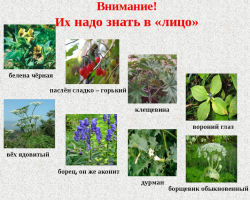What tree is called verba and what willow? What are the types of willow?
Content
How the verba differs from willow: you will find a comparison of these similar trees in this article. How to distinguish willow from willow according to the correct biological classification?
How the verba differs from willow: comparison of trees
Many do not know how the verba differs from willow, and confuse these trees. Confusion is probably due to different names in different regions. The word “willow” is translated into the Ukrainian language as “verba”. That is, in Ukraine, all willow are officially willow. But for the inhabitants of Eastern Ukraine, Russian weeping willow is also a willow on local dialects.
The Russian dictionary also has the word verba. And this word means two special species of trees of the willow family. There is a tree in the official classification Red Verba and Wolf willwhich can also be called Verba.Verba differs from willow in that in the early spring, fluffy cats appear on it.
Verba Or wolf willing is a plant on which these cats grow. Verba is considered a tree, but in nature a shrub and like a tree can grow. Typically, the groves of willows look like bushes from which large tall trees with a wide crown grow. Verba grows up to 12 meters high.

Red Verba Or Krasnotal is also a plant of the willow family. The color of the branches distinguishes from the ordinary willow-they have saturated red. In March, Krasnotal, like an ordinary verba, blooms with cats. Red vertical bushes are often used as a decorative plant. And on forest edges, Krasnotal resembles a real bonfire.

In total, there are 552 species of different plants in the willow. And many of them are popularly called willow. But it is believed that only one plant from the genus can be called the whole genus. And for the Ivov family, this is a whitewaway tree.

The tree is white willow
White willow It is considered a typical plant of the genus. This is a kind of standard that has collected the most typical qualities of the most common willow trees. White willow differs from others with a white-silver shade of leaves. Long branches of the white willow freely go down, the tree looks like most of us draw a I willow tree in their imagination.
But white willow and weeping willow are different plants for biologists. The main difference is the color of the leaves. In white willow, they are whitish, and in weeping willow - green. In winter, the willow can serve as a decoration of the house instead of pine or spruce.

IV WEACH or BAVILOVSKAYA
The weeping willows grow to a huge height of 10-12 meters. This means that Babylonian willow can grow to a height of the 4th floor. China is considered the birthplace of this tree, from there the weeping willows spread around the world, including Africa. Near the water, weeping willows are planted not only because it is beautiful. The roots of the I willowly strengthen the shore.

Ivas tree in folk and official medicine
Not everyone knows that it is white willow - this plant from which aspirin was received for the first time. Thanks to white Iva, humanity got acquainted with a whole group of non -steroidal anti -inflammatory drugs. The well -known analgin, aspirin, paracetamol, diclofenac, and many other drugs include there. Now aspirin is created from synthetic substances, and not one willow is suffering at the same time.
Willow bark use and in folk medicine. True, a broth from the bark is not as effective and concentrated as aspirin from the pharmacy. Iva is used to relieve the following symptoms:
- SARS and fever because of him.
- Headache.
- Inflammation of different localization.
On our site there are many other interesting articles about plants:
- 100 interesting facts about the plants of the world.
- The most exotic plants, descriptions and photos.
- Trees long -livers.
- How many years does a birch live, depending on the species and climate?







